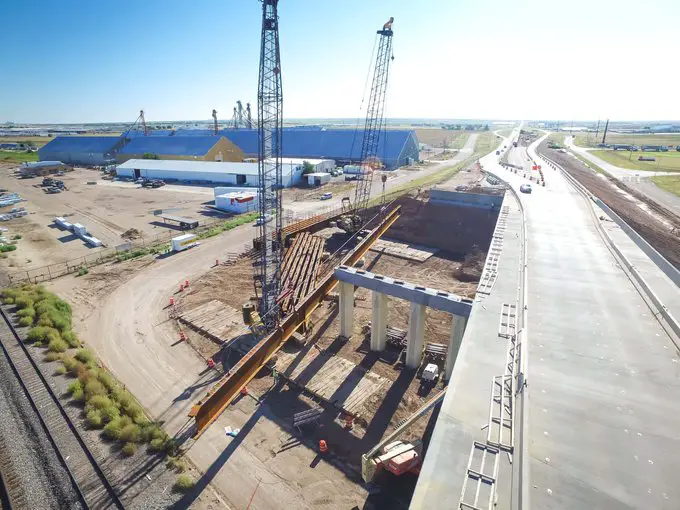Webber, a subsidiary of Ferrovial has won a contract from the Texas Department of Transportation for expansion and rehabilitation of FM 1960 road project in Houston, U.S. The contract is valued at $70 million and will involve widening the widening of FM 1960 road project from four to six lanes.
The upgrade will also involve the construction of around 165,000ft2 of the bridge deck plus 170,000 square yards of concrete pavement as well as 2.59 million pounds of steel tub girders. In addition, Webber will construct a four-lane main lane overpass bridge crossing over West Lake Houston Parkway. The expansion and rehabilitation of the road is expected to be complete by 2023. Earlier this year, Webber won a $115 million contract to upgrade IH 35 in Laredo, Texas.
The contract will involve the addition of a main lane travel lanes to IH 35 in each direction, the construction of main lane bridges and around 2.4km of the new direct connector. In addition, the contractor will construct more than 400,000ft2 of the bridge deck. Finally, the contract will involve the installation of more than 12 million pounds of steel girders.
In June, Webber secured another contract to rebuild around 12km of the SL 12 highway in Dallas, US at a cost of $301m. The contract involved the reconstruction of existing Interchanges between State Spur 482, State Loop 12, State Highway 114 and 183. The road’s existing lanes were also expanded and 32 more bridges constructed.
Additional work on the SL 12 highway projected included subgrade stabilization, grading, drainage, water, sanitary sewer, and pavement markings. In a statement, Webber heavy civil division president Josh Goyne said,“Webber is excited to win this project; a project which will allow commuters an easier time navigating this area with improved connectivity and the ability to avoid the traffic congestion normally seen here during peak traffic times.”

